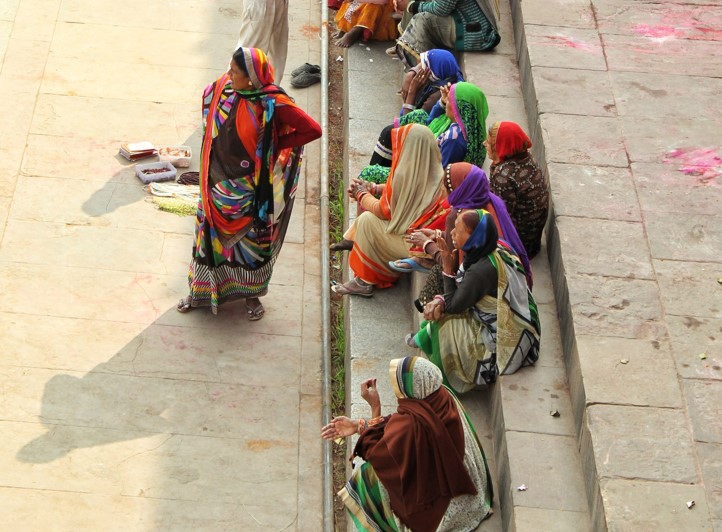The term “matriarchal societies” refers to a social structure in which women have major roles in decision-making at both the household and the societal levels. These matriarchal civilizations offer an interesting perspective on how gender roles can be reimagined and can be a useful tool in the study of societal change.
For the most part of human history, patriarchal civilizations have been the norm, with men holding most positions of power and control. There are, however, notable outliers where women wield considerable power and authority.
In this article, we will look into six such matriarchal societies that exist from different corners of the world. Each with its unique customs, beliefs, and practices.
Table of Contents
6 matriarchal societies that exists
1. India’s Khasi Tribe
The Meghalaya state of northeastern India is home to the Khasi people, who are notable for being one of the world’s last matrilineal communities.
Women play a crucial role in decision-making and governance in Khasi society because female lineage is the primary means of determining family and kinship.
Property and money are also inherited through the female line, providing women substantial economic autonomy. There is no social shame attached to getting a divorce or dating someone outside of your gender.
The Khasi culture promotes gender equality and respect by honoring women for their achievements.
2. China’s Mosuo People
Near the border between China and Tibet, there lives a group of people known as the Mosuo. They are often described as the “last matrilineal society in China.” Their matriarchal system of “walking marriage” is one of a kind.
Marriage and other forms of legal commitment are not recognized under this system. Instead, women have the freedom to pick their partners and keep their independence by establishing separate residences. Additionally, mothers and maternal uncles take care of the children.
Women in the Mosuo society wield considerable influence because of their roles as primary decision-makers in the home and in public policy. Their family and social structure are models of cooperation and equality.
3. Indonesia’s Minangkabau People
The Minangkabau are an Indonesian people that live in the beautiful surroundings of the island of West Sumatra and who follow a matrilineal social structure.
In this society, women have a vital role in passing down their traditions. Thus ensuring the continuity of wealth, power, and inheritance from mother to daughter. Consensus-based decision-making is highly valued, and the community as a whole strives for peace and unity.
Minangkabau women are well-known for their entrepreneurial drive and their prominent roles in business leadership and commerce. However, men continue to dominate positions of power in public and religious organizations.
4. Ghana’s Akan People
The Akan people of Ghana, West Africa, have a long and storied culture in which women have held prominent roles throughout history. Children are regarded to be part of their mother’s family lineage in Akan society, which has a matrilineal kinship structure.
Women are now able to take on leadership responsibilities in the home and the wider community because to this arrangement. Women in Akan society have positions of power as queen mothers and on councils, and their knowledge and experience is widely regarded as invaluable.
Although men still predominate in Akan society’s most powerful institutions like government and religion, women play an integral role in everyday life.
5. Costa Rica’s Bribri People
The Bribri are an indigenous people group from the Costa Rican rainforest that follow a matriarchal social structure based on a deep respect for the environment and their ancestors’ spirits.
Women run their houses and are the keepers of the land, the culture, and the customs. Although men play significant roles in Bribri culture, they are not accorded the same status as women.
Women in the Bribri culture hold a special place in society because of their roles as spiritual leaders and healers. Matriarchal qualities of caring and caretaking are important to the Bribri people’s idea of sustainable practices and environmental preservation.
6. The Umoja People, Kenya
In the heart of Kenya, the Umoja People have developed a community completely consisting of women. The Umoja village was established by women who had survived gender-based violence to provide a safe haven for other women fleeing harmful patriarchal customs.
Here, women support one another as they break free from traditional gender norms. And, they labor together to create homes, provide for families, and raise children. They earn money by guiding tourists through the village and educating about their rights.
Read also: 6 countries that are leading the world for women in politics
Possibilities for social structures
Understanding gender roles and the variety of social structures is made easier by looking at these five matriarchal societies.
Women in these groups, from the Khasi of India to the Bribri of Costa Rica, hold enormous authority and work to dismantle traditional gender roles while promoting a culture of equality and mutual respect.
We may learn more about the range of possible social structures and the power women have to shape them by gaining an appreciation for and familiarity with these diverse cultural practices.












